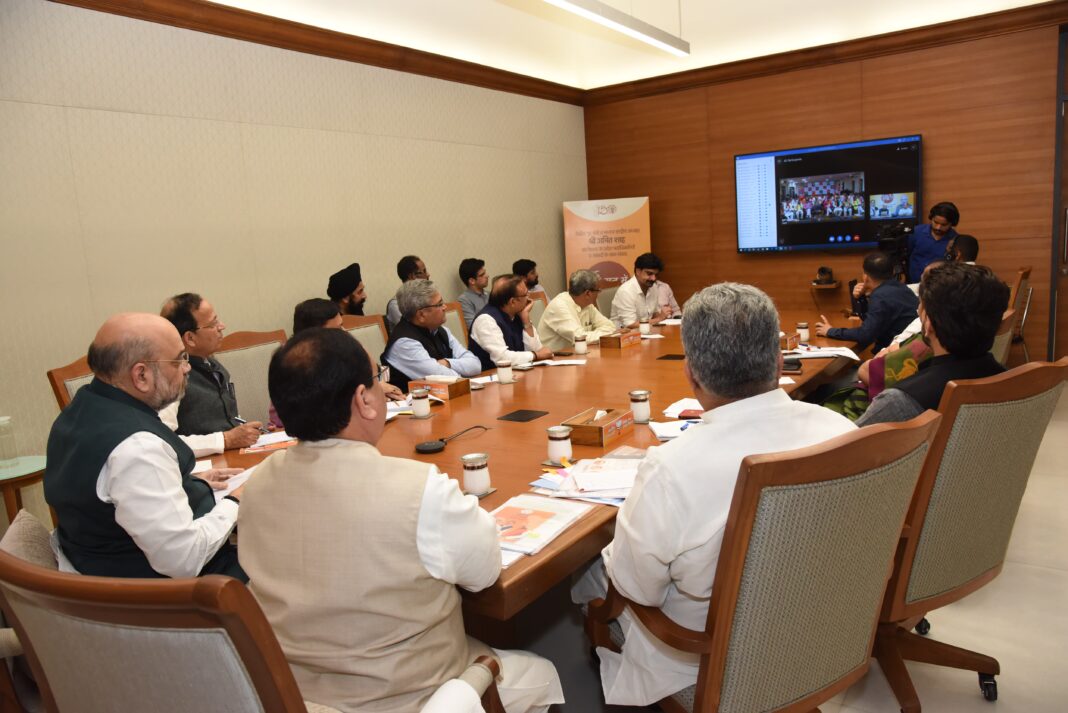Unprecedented Refusal to Chair Session or Attend Farewell Signals Deep-Rooted Issues
Published on: July 22, 2025
By: BTNI
Location: New Delhi, India
In a move that has left the political establishment reeling, Vice President Jagdeep Dhankhar has made headlines by refusing to preside over today’s session as Chair and declining to participate in any farewell ceremony, marking an unprecedented chapter in India’s parliamentary history. This resolute decision, described as final with no possibility of reconsideration, has sparked intense speculation about the underlying reasons for such a dramatic exit. Dhankhar’s actions, rare for a sitting Vice President, signal a significant departure from tradition and have raised eyebrows across the political spectrum.
Dhankhar, known for his steadfast commitment to parliamentary decorum and constitutional duties, has chosen to step away in a manner that underscores his firm stance. Sources close to the Vice President indicate that his decision stems from deep-seated concerns, though specifics remain undisclosed, fueling debates about what could have prompted such an extraordinary move. The absence of Dhankhar from both the Chair and any ceremonial farewell is not just a procedural anomaly but a historic moment that reflects potential tensions within the political or institutional framework.
Also read- https://www.btnewsindia.com/क्या-rss-सदस्यता-अपराध-है-धनख/ https://www.btnewsindia.com/महाराष्ट्र-में-भाषाई-गुं/
The Vice President’s role, as the ex-officio Chairman of the Rajya Sabha, carries immense responsibility in maintaining the sanctity of parliamentary proceedings. Dhankhar’s refusal to attend today’s session disrupts the usual rhythm of the Upper House, leaving members and observers questioning the implications for ongoing legislative activities. His decision to forgo a farewell ceremony, typically a moment of reflection and acknowledgment of contributions, further amplifies the gravity of his exit. This unprecedented act has drawn comparisons to rare instances in global parliamentary history where high-ranking officials have chosen symbolic gestures to express dissent or mark a definitive end.
Political analysts suggest that Dhankhar’s move could be a statement on the evolving dynamics of India’s political landscape, possibly hinting at disagreements or dissatisfaction with certain developments. While no official statement has detailed the precise reasons, the Vice President’s actions speak volumes, suggesting that something was “seriously wrong” in the backdrop of his tenure. This has prompted calls for greater transparency to understand the factors driving such a bold decision.
As the nation grapples with the implications of this extraordinary development, Dhankhar’s exit is likely to remain a topic of intense discussion. His tenure, marked by efforts to uphold parliamentary standards, now concludes on a note that challenges convention and invites reflection on the state of India’s democratic institutions. The absence of a farewell and his refusal to chair the session underscore a moment of rupture, leaving a lasting impression on the country’s political narrative.
As the Rajya Sabha continues its proceedings without its Chairman, the legacy of Dhankhar’s dramatic departure will undoubtedly shape conversations about leadership, duty, and institutional integrity in the days to come.




